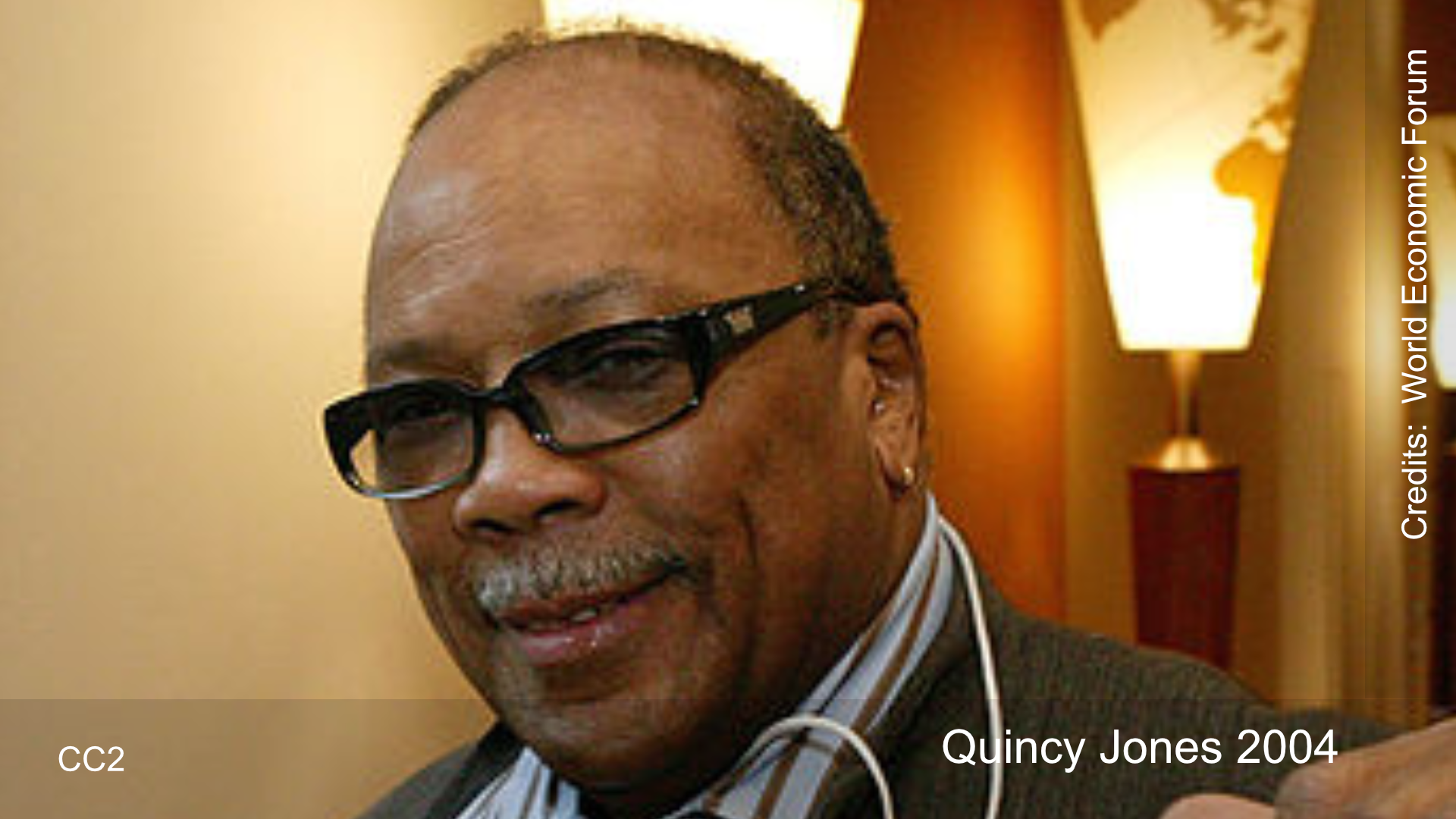Jones’ journey began in a tough neighborhood on Chicago’s South Side. After a violent incident, his family moved to Bremerton, Washington, in search of a better life. This move proved pivotal as it led to his meeting with Ray Charles, who inspired him to pursue music. Their friendship and collaboration opened new horizons for Jones, who quickly made a name for himself as a talented arranger and composer.
Quincy Jones’ early career saw him joining Lionel Hampton’s big band as a trumpeter and arranger. He later worked with jazz legends like Count Basie and Duke Ellington, further solidifying his reputation. His studies in Paris under Nadia Boulanger and Olivier Messiaen refined his skills, preparing him for a successful career in film and television scoring.
In the 1960s, Jones made history as the first Black vice president of Mercury Records. He produced numerous hits for artists like Lesley Gore and arranged Frank Sinatra’s iconic “Fly Me to the Moon.” His work on film soundtracks, including “In Cold Blood,” earned him critical acclaim and multiple Academy Award nominations.
Quincy Jones’ collaboration with Michael Jackson on albums like “Off the Wall,” “Thriller,” and “Bad” remains a cornerstone of his legacy. These projects not only catapulted Jackson to superstardom but also showcased Jones’ unparalleled production skills. His ability to harness Jackson’s talent and transform the recording studio into a dynamic environment contributed to the albums’ success.
Jones’ influence extended beyond music production. He organized the recording of “We Are The World,” a charity single that raised millions for Ethiopian famine victims. His humanitarian efforts continued through the Quincy Jones Foundation, supporting arts education and various causes worldwide.
Despite facing personal challenges, including a crumbling marriage, Quincy Jones persevered. He founded Quincy Jones Entertainment, produced television shows like “The Fresh Prince of Bel-Air,” and staged a concert for President Clinton’s inauguration. His commitment to excellence and innovation remained unwavering throughout his career.
Jones’ contributions to music and society earned him numerous accolades, including 28 Grammy Awards, induction into the Rock & Roll Hall of Fame, and France’s Order of Arts and Letters. His legacy continues through his children, including Rashida Jones, and the countless artists he inspired.
Quincy Jones’ passing marks the end of an era in music. His influence and contributions will resonate for generations, inspiring future artists and reminding the world of his extraordinary talent and vision. As we celebrate his life, we honor the legacy of a true music titan whose heart will continue to beat through his timeless creations.







Be First to Comment